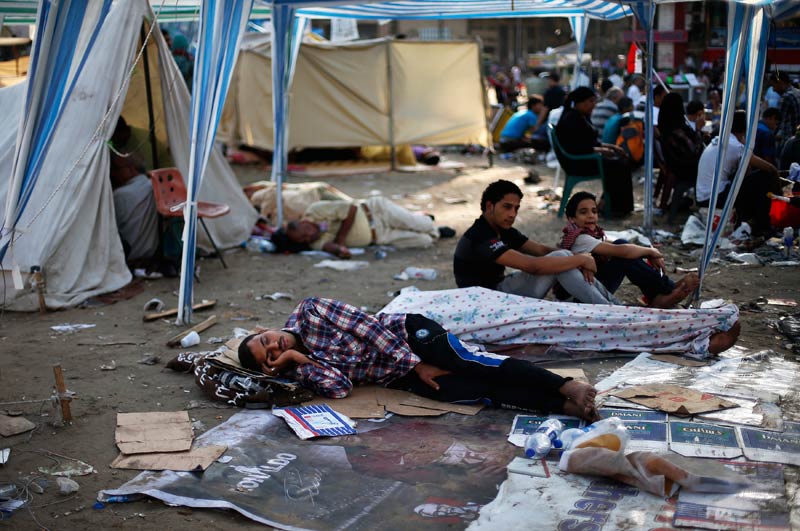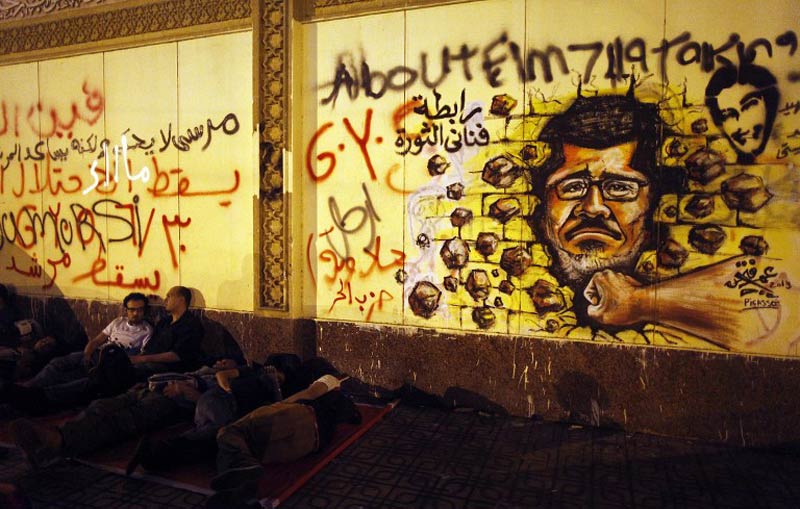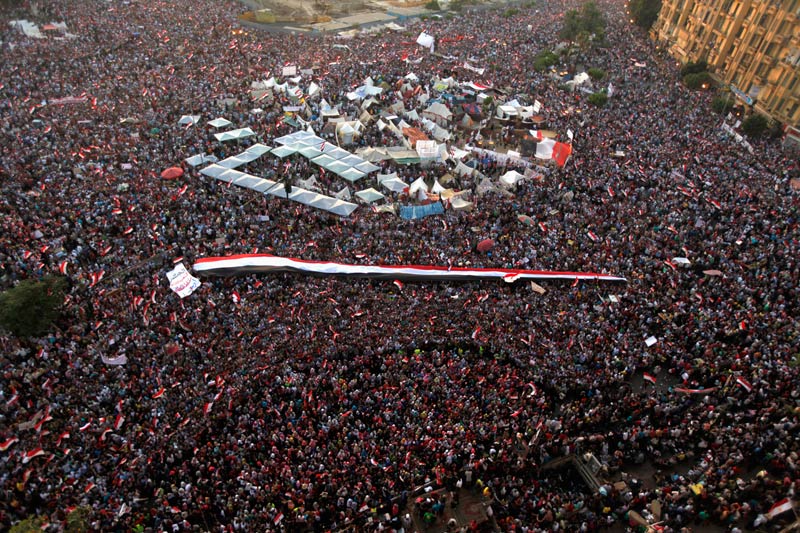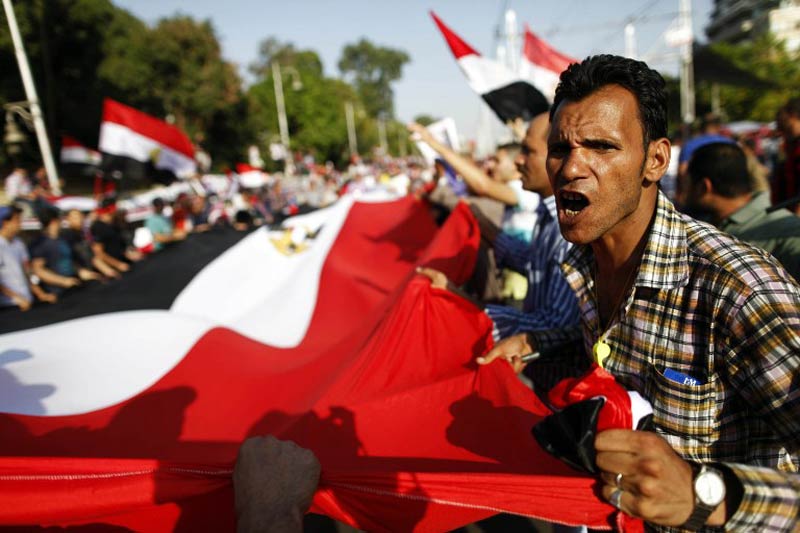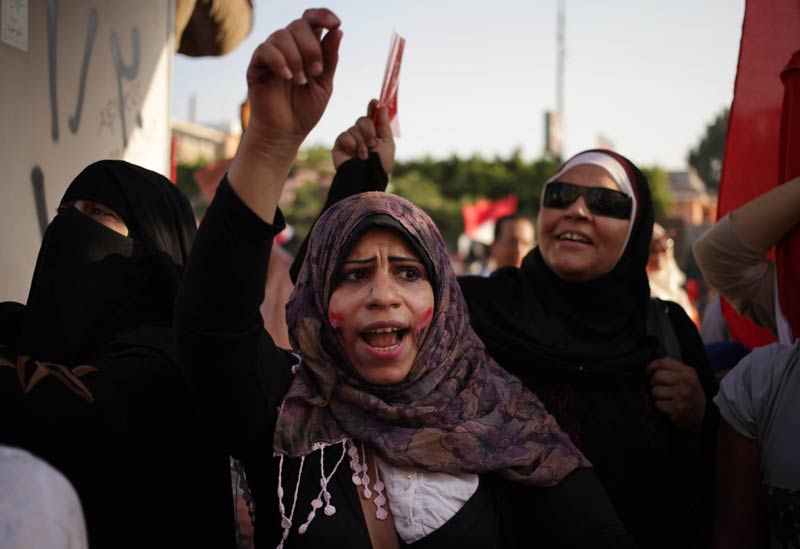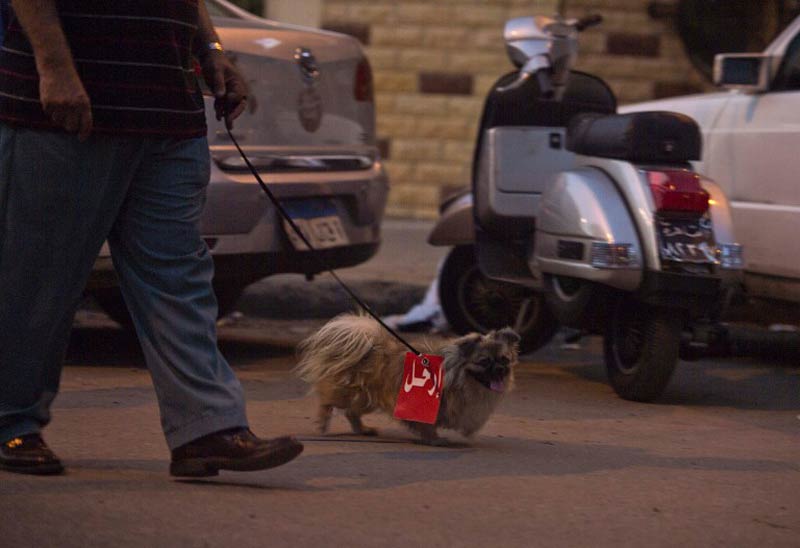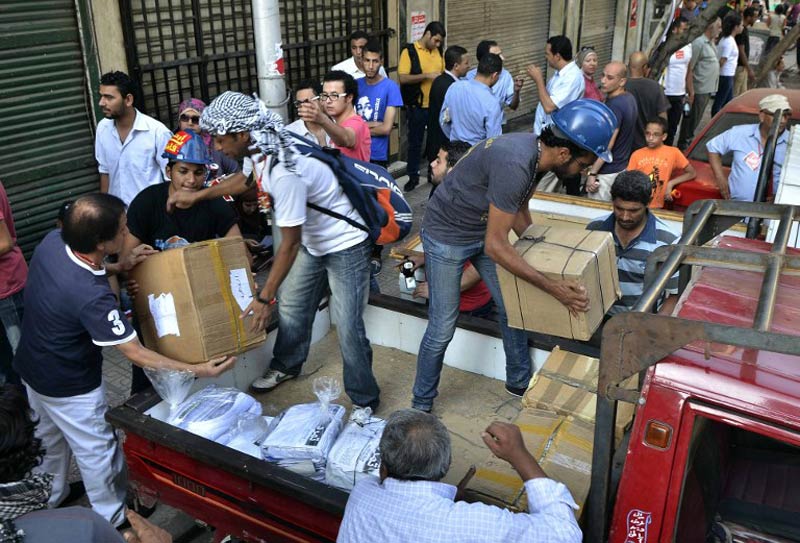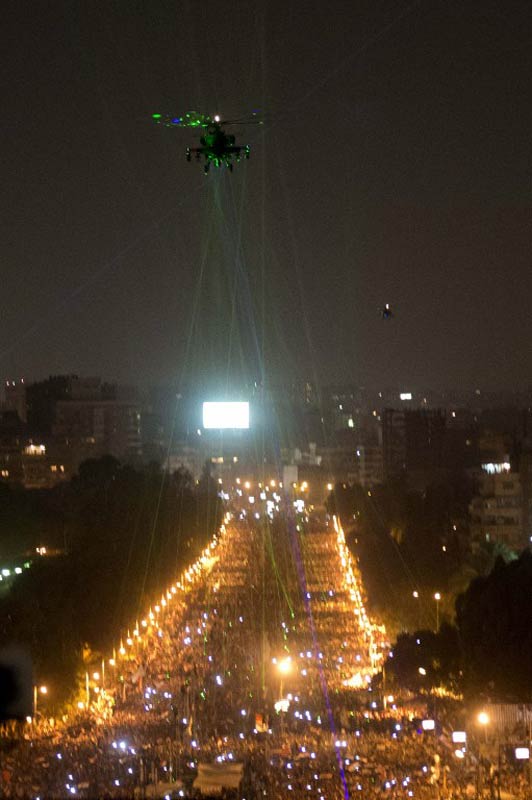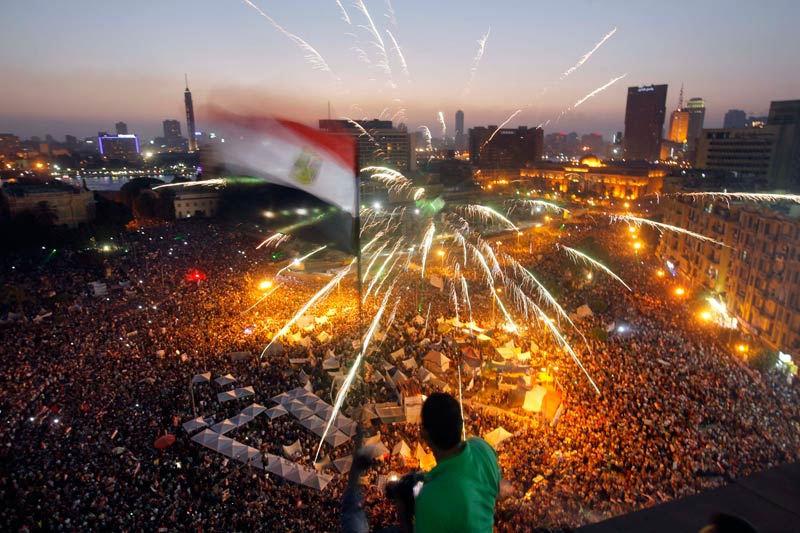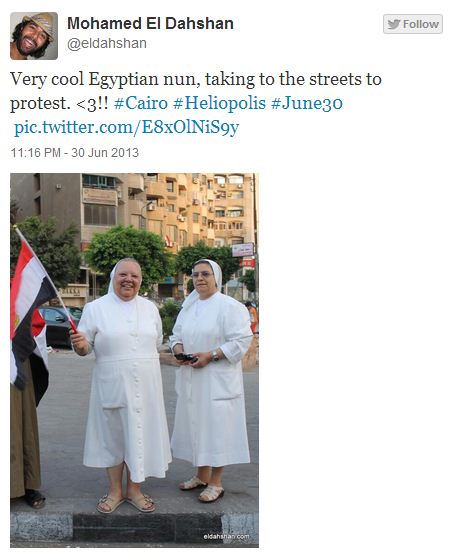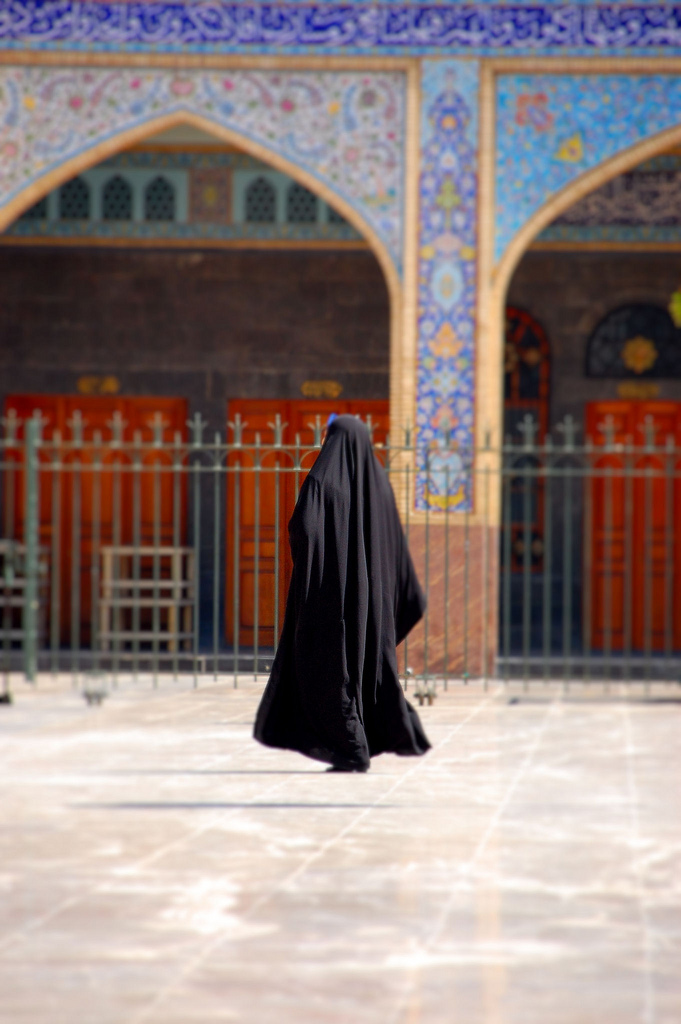The Sayyeda Nafisa mosque in Cairo is surrounded by chaos, chaos that laps at its walls and occasionally seeps inside its doors.
The women’s section is entered via an alleyway running along one side of its walls, an obstacle course of ever decreasing human need: from beggars, supine and supplicating, to an insistent seller of single flowers wrapped in plastic and tied with a ribbon (a gift for Nafisa), to the relative self-sufficiency of a small stall selling religious bric-a-brac.
Inside, women lie prostrate or sit or pray at the shrine’s entrance, buffeted by the voices of three rambunctious cleaners who are as much concerned with cleaning out the pockets of the faithful as the faithful are with cleansing their souls, busily sweeping/blocking the mosque exit as they extol the beauty of the “moons” in front of them.
At the shrine itself women touch the walls as they recite Qur’an while on the other side of a trellis-like structure dividing the sexes, men do the same. At the end of a room an officious man in his sixties oversees proceedings, occasionally barking out orders at the squawking cleaners and even the devotional themselves.
There is a constant stream of people on this early Friday evening. A small boy wanders through the supplicants, lost in his own reverie – of crisp-eating. Another woman dressed in a black baggy tunic reclines against a wall, cheek in palm, staring into the middle distance. Then she suddenly and without warning prostrates herself in prayer, almost throwing herself flat onto the ground until her thin form is submerged in her clothes so that she resembles the Wicked Witch of the West who got her comeuppance.
There was drama inside the mosque on this Friday evening. With great bluster a woman – still wearing her shoes – swept into the entrance hall and declared that she had been robbed while at the shrine. One of the cleaners, a particularly active woman in her early 70s wearing a green khimar matched with a long necklace of prayer beads, immediately launched into action and declared that she would find the thief. The doors to the shrine room were shut, to no clear end. The thief had gone. The officious man, armed with a long metal ruler, began imperiously demanding that women at the shrine leave, and was mostly ignored. He focused his attention on a woman seated on the floor.
“Stop begging and get out,” he said.
“Don’t push it,” the woman replied.
The man declared that he would summon someone to remove her. The woman looked the other way and continued eating.
There is a donation box next to the shrine. A woman opened her purse and moved a single LE10 note out of the way to get at a few coins, which she dropped in the box. Another woman gave guavas to the officious man and the cleaners and anyone else who crossed her path.
The cacophony of it all was pierced by the call to the Esha prayer, beautiful but loud, pumped out of the mosque’s speakers. But even at top volume it could not drown out the sound of a fight coming from the alleyway outside. The cleaners took their brooms and immediately went to inspect.
Two robust matrons, eyeballing each other, were screaming threats and invective. One of them worked at the stall they were standing in. A group of people watched. A young girl of around 16 sat on a stool in the stall and became increasingly agitated until a youth of around the same age or younger suddenly flung himself on her and viciously attacked her, dragging her out of her seat and along the ground. One of the matrons hit her on the back with both hands. She was punched and pulled across the narrow alley until one of the cleaners, a determined septuagenarian, intervened and led the sobbing and distraught girl into the mosque to seek refuge. It was impossible to tell how the fight had begun or what it was about.
The robust matron sat on a plastic chair and answered her mobile phone as if nothing had happened. She interrupted her caller only to entreat the young man not to follow the girl into the mosque as he took his shoes off. He went in briefly anyway.
The cleaner who had rescued the girl appeared.
“Come inside again and I’ll give you fucking hell,” she promised the boy. He skulked away.
The fury lingered as the prayers began. A man had watched the violence impassively – he started reciting Qur’an halfway through while spectating. He left. The robust matron took up her sentry position at the stall again as the sound of the prayers floated out into the tormented night and disintegrated above a young woman who emerged from the mosque in tears and pressed her face into the wall, arms by her side, perfectly still apart from the sobs rippling through her body. Opposite her, somebody had twice written in a strange curling font on the mosque wall: “I seek forgiveness from God”.
Sarah Carr (@sarahcarr) is a British-Egyptian journalist. This post was first published on her blog www.inanities.org
